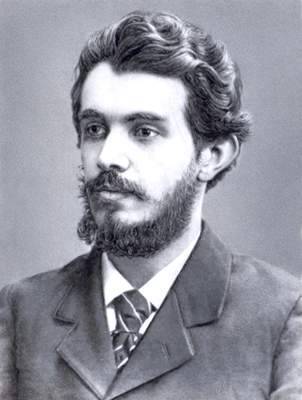Hakusuisha, Eiji Saito translation of Berdyaev, Dostoevsky's View of the World.
Berdyaev's "Dostoevsky's Worldview," which we present here, is a work known as a classic in the study of Dostoevsky's thought.
In my previous article.Revolution or God: Dostoevsky's Worldview."In the "The World's Most Beautiful Women" section, the author, Kudryavtsev, harshly criticized this work from a Soviet ideological perspective, which may be a reflection of the fact that this work had such a great influence throughout the world.
Let's take a quick look at his profile.

Nikolai Alexandrovich Berdyaev( 1874-1948)
Russian-born philosopher. Combined Marxism with Kantian philosophy and turned from materialism to idealism. Under the influence of Dostoevsky, he returned to Christianity. He deepened his philosophical thought on the problems of revolution and the intellectual class, and discussed culture and history on the basis of spiritual freedom. His major books include "Dostoevsky's World View," "The Meaning of History," "Solitude, Love, and Society," and "My Life: An Attempt at a Philosophical Autobiography.
Hakusuisha, Eiji Saito translation of Berdyaev, Dostoevsky's View of the World.
The translator's commentary at the end of the book summarizes the book, so I will quote from that as well.
Nikolai Aleksandrovich Berdyaev (1874-1948) founded the "Free Academy for Spiritual Culture" in Moscow in 1919, in the midst of the revolutionary turmoil, with the mission of preserving Russian spiritual culture.
At this academy, he led the Dostoevsky Seminar during the winter of 1920-21. This led to the writing of this book, "Dostoevsky's View of the World," in the fall of 1921.
However, a year later, in the fall of 1922, he was exiled because of his religious views. The publication of this book took place outside the country. As a fellow countryman, Berzhaev was moved by Dostoevsky's admiration and expressed deep sympathy for him. Therefore, his discussion of Dostoevsky shows the free and natural penetration of his own ideas.
Berdyaev's intention in this book is not to provide a literary history, literary criticism, biography, or psychological analysis of Dostoevsky, but to plumb the depths of his mind, to open the depths of his worldview, and to reproduce his worldview "intuitively. Berdyaev seeks to elucidate the conceptual life that pervades his art, the dialectic of his thought. (omitted).
Berdyaev's fundamental attitude in this book was to sink "intuitively" into the great, unified spiritual phenomenon that is Dostoevsky, and to blend into the spiritual organism that is Dostoevsky.
Hakusuisha, translated by Eiji Saito, Berdyaev, "Dostoevsky's World View," p. 285-286.
Some line breaks have been made.
Berdyaev was a Russian-born scholar who was active in the post-revolutionary Soviet Union. However, under the influence of Dostoevsky, he became a Christian, and because of his beliefs, he was deported from the Soviet Union and went into exile.
Berdyaev himself states in the preface to the book
Dostoevsky had a decisive significance in my spiritual life. Already as a boy, I received my first inoculation from Dostoevsky. No writer or thinker has ever stirred my soul as powerfully as he did. I always divided people into two groups: those who were Dostoevsky's people and those who were unrelated to his spirit. My consciousness had already been turned to philosophical problems from my youth. And this tendency was connected with Dostoevsky's so-called "current problems.
Each time I read Dostoevsky's works, he always opened up a new aspect to me. The theme of "The Tale of the Grand Inquisitor" pierced my young soul with a shuddering sharpness. My first confession of faith in Christ was to the figure of Christ in this "Tale.
The idea of freedom has always been the cornerstone of my worldview and my sense of the world. It was in this fundamental intuition of freedom that I encountered Dostoevsky. He became my spiritual home.
Hakusuisha, translated by Eiji Saito, Berdyaev, "Dostoevsky's World View," p. 5.
Some line breaks have been made.
He then describes his own position in this work as follows
I do not intend to write a literary-historical paper on Dostoevsky. Nor do I intend to provide a biography of him or a sketch of his personality. My book, after all, is not a study that belongs to the realm of "literary criticism. -I am not going to write a biography of him, nor am I going to provide an overview of his personality.
Nor am I approaching Dostoevsky from the standpoint of psychology, nor am I trying to uncover Dostoevsky's "psychology. My task is different from these.
My work does not belong to the realm of psychology, but must be likened to that of psychiatry. I want to get to the bottom of Dostoevsky's psyche, to open the depths of his sense of the world, and to intuitively reproduce his worldview.
Dostoevsky was not only a great writer, but also a great thinker and a great prophet. He was a great apologist and Russia's greatest metaphysician.
sense (e.g. of duty)plays a major, central role in Dostoevsky's creation, and the dialectic of genius of thought occupies no less a place in Dostoevsky than his marvelous psychology.
The dialectic of his thought is one of the characteristics of his art. Through his art, he reaches to the roots of conceptual life. And the conceptual life pervades his art.
Hakusuisha, translated by Eiji Saito, Berdyaev, "Dostoevsky's World View," p. 10-11.
Some line breaks have been made.
From the latter part of the book, you started to use philosophical terms such as "conception" and "dialectic".
Kudryavtsev's "Revolution or God - Dostoevsky's Worldview" was the subject of criticism for his abstract and conceptual stance in this area. Berdyaev, he says, does not see the real world.
Reading this book again after reading Kudryavtsev, it is true that this is not the case. However, Berdyaev wrote this book after clearly stating his position from the very first preface: "I look at Dostoevsky from the perspective of his ideas. Therefore, I felt a little sorry that he was criticized so strongly.
And in this book, the following words by Berdyaev stand out. This seems to be a very important point to make when studying Dostoevsky.
Those who read Dostoevsky and feel plunged into darkness with no relief, those who feel only bitterness and cannot feel joy, are those who have not seen him and do not know him.
Hakusuisha, translated by Eiji Saito, Berdyaev, "Dostoevsky's World View," p. 33.
Berdyaev states that there is salvation in Dostoevsky's work.
Reading Dostoevsky brings me great joy. It is a great spiritual liberation. It is a joy that comes through suffering. But this is the Christian way. Dostoevsky restores for us faith in man, faith in the depth of man.
Hakusuisha, translated by Eiji Saito, Berdyaev, "Dostoevsky's World View," p. 32.
The road to light is through darkness. Dostoevsky's greatness lay in the fact that he showed that light shines in the darkness.
Hakusuisha, translated by Eiji Saito, Berdyaev, "Dostoevsky's World View," p. 276
There is light and salvation in the suffering of life. Berdyaev states that the salvation of Dostoevsky's works lies in the acceptance of suffering as suffering.
Dostoevsky is a writer with a strong image of having written only heavy and dark works, but he clearly states that this is not the true Dostoevsky. Herein lies the distinctive feature of his view of Dostoevsky.
Based on this position he takes a unique view of Dostoevsky's worldview as a "conception". This was quite an exciting book.
Kudryavtsev's.Revolution or God: Dostoevsky's Worldview."It is even more interesting to read the book by contrasting it with the following two books, which highlight the differences in their respective philosophies.
We encourage you to read the two sets.
The above is "Berdyaev, "Dostoevsky's Worldview," a classic in the study of Dostoevsky's thought.
Next Article.
Previous Article
Related Articles





































